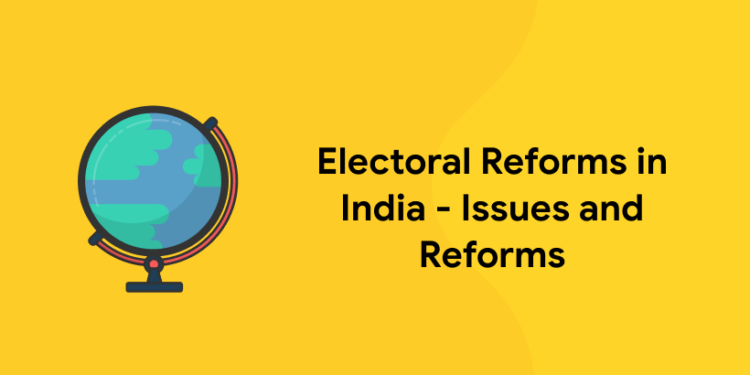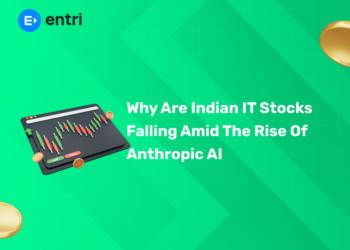Table of Contents
Free and fair elections are the backbone of Indian democracy. As we all know India is the world’s largest democracy. Democracy has been implemented in its pure form through elections. There are various kinds of elections in our country like Presidential elections, Lok Sabha election, Rajya Sabha Election, Assembly elections, Local self-government election etc. the elections laws, rules and regulations which we follow today are developed through various kinds of election reforms. If elections are corrupted in a country, then the democracy of the country will fail. In order to safeguard the free and fair election, election reforms have been brought by different committees through different ages. Let us look into the Electoral Reforms in India – Issues and Reforms.
Subscribe to Entri APP to Redefine the Learning Experience of Competitive Examinations
Election Reforms Committees in India
The one name which comes to your mind when you hear about the election reforms in India is TN Sheshan IAS. Sheshan was one of the most daring and efficient chief election commissioners India has ever seen. In the period of 1996 when he was the Chief election commissioner a lot of election reforms took place. This year has marked the election reforms to divide the election reforms into the following categories:
- The election reforms before 1996
- The election reforms of 1996
- The election reforms after 1996
- The election reforms since 2010
Subscribe to Entri APP to Redefine the Learning Experience of Competitive Examinations
Considering the long facts of election reforms in India, we can see it is not only Sheshan but their various committees associated with the election reforms. The committees that are formulated to reform the elections in India can be listed as follows:
- Joint Parliamentary Committee on Amendments to election laws (1971-1972)
- Tarkunde Committee 1975
- Dinesh Goswami Committee on Election Reforms 1990
- Vohra Committee on nexus between Crime and Politics 1993
- Election Commission of Indian on Recommendation on Election Reform 1998
- Indrajit Gupta Committee on State Funding on Elections
- Law Commission of India 170th Report on Reform of the Electoral laws 1999
- National Commission to Review the working of the constitution 2000-2002
- Election Commission of India Report on Proposed Electoral Reforms 2004
- Second ARC Report on Ethics in Governance 2007
- Tankha Committee 2010
- J S Verma committee 2013
- Law commission of India 244th Report 2014 & 255th Report 2015
Election Reforms Before 1996
1: Who was the first woman President of India?
| Reforms | Significance |
| Voting Age | 61st constitutional amendment act of 1988 reduced the voting age from 21 to 18 |
| Deputation of election commission | In 1988 a provision was made that the officers and staff engaged in the elections are deputed to the election commission. |
| Increase in number of proposers | The number of proposers to the nomination has been increased to 10% to the electors in constituency or ten such electors whichever is less |
| EVM | The electronic voting machines (EVM) have been introduced in 1989 |
| Booth Capturing | In 1989 a provision has been introduced to adjourn or countermanding of elections in case of a booth capture |
| EPIC | The election commission in 1993 has decided to issue a photo identity card called Electors photo identity card (EPIC) |
Subscribe to Entri APP to Redefine the Learning Experience of Competitive Examinations
Free UPSKILLING Courses!
Take your first step toward mastering in-demand skills, acing interviews, and securing top-tier jobs with Entri's free upskilling courses.
Start Learning!Election Reforms of 1996
| Reforms | Significance |
| Listing Names of Candidates | The candidates’ names are to be listed in the following three categories
· Candidates of recognised political parties · Candidates of registered-unrecognized political parties · Other (independent) candidates |
| Disqualification for insulting National Honour | A person who is convicted of the following offenses under the Prevention of insults to National Honour Act of 1971 is disqualified
· Offense of insulting national flag · Offence of insulting the constitution of India · Offence of Preventing the singing of national anthem |
| Prohibition of sale of liquor | The selling or giving of liquor with in the polling area during 48 hours fixed at the ending of the conclusion of the poll has been prohibited. This provision is to prevent the undue influence on electors |
| Number of proposers | The number of proposers in parliamentary or assembly elections are fixed to be 10 |
| Death of the candidate | If the death of the candidate has occurred, the election will not be countermanded. The recognised political party will be given an option propose another candidate within 7 days |
| Time limit for by election | The time limit for my election is set to be 6 months. However, it is not applicable in two cases
· The term of the new vacancy is less than 1 year · The ECI in consultation with central govt certifies that it is difficult to hold elections |
| Holiday on Polling Day | The voters are entitled to get a holiday on the polling day. If the employer is not giving the same will be punished a fine up to 500 |
| Restriction on contestants | The contestants are restricted to contest in more than one parliamentary or assembly constituencies |
| Prohibition of arms | Entering the polling station with arms is prohibited and doing the same will be punished. The provisions are not applicable to the returning officer, presiding officer or any police officer. |
| Effective campaigning period reduced | The minimum gap between the last date of withdrawal of candidature has been reduced from 20 to 14 days |
Election Reforms After 1996
| Reforms | Significance |
| Presidential and Vice-presidential Elections | The number proposers of presidential elections are increased from 10 to 50 and that of vice-presidential elections from 5 to 20. The security deposits remitted for election has been increased from 2500 to 1500 |
| Requisitioning of staff | The employees of local authorities and nationalized banks, universities and other government aided institutions can be employed for elections |
| Voting through Postal Ballot | In 1999, certain persons as notified by the election commission can be voted through postal ballot |
| Vote through Proxy | For the persons applying the Army act, the voting through proxy has been introduced |
| Declaration | In 2003, through this reform, the candidates are required to furnish and declare the information regarding the criminal case convicting acquittal pending case, educational qualifications, assets and liabilities etc |
| Changes in Rajya Sabha | There are two changes brought to Rajya Sabha elections.
· Domicile or residency requirements of candidates · Introducing open ballot system instead of secret ballot system |
| Exemption of Traveling expenses | The traveling expenses of candidates as part of election campaigning is excluded from the election expenses |
| Free supply of electoral rolls | Government should supply the electoral rolls with free of cost to political parties |
| Parties are entitled to accept contributions. | The political parties are entitled to accept contributions from any person or a company. The contributions in excess of 20,000 are to be reported |
| Introduction of Braille signage features in EVMs | As the commission received representation from various association, it began to add braille features in EVMs |
Subscribe to Entri APP to Redefine the Learning Experience of Competitive Examinations
Election Reforms since 2010
| Reform | Significance |
| Restriction on exit polls | Conducting exit polls to Lok Sabha and state assemblies has been prohibited in 2009 |
| Time limit for case filing | The time limit for case filing for disqualification of person found guilty of corrupt practices is set to be three months |
| All officials included in corrupt practices | All officials whether government or non-government on deputation of EC is included in corrupt practices |
| Appellate authority within the district | In 2009 a provision for the appointment of an appellate authority within the district against the orders of the electoral registration officers instead chief electoral officer of the state |
| Voting rights of citizens living abroad | Provisions was made to confer the voting rights persons living abroad whose names are not included in the electoral roll and those who have not acquired the citizenship of any other country |
| Online enrolment | The amendment of the registration of the electors in 2013 introduced the online enrolment of electors |
| Introduction of NOTA | ECI has included the option None of the Above (NOTA) as polling option in the EVM. It was a remarkable reform. |
| Introduction of VVPAT | The voter verified paper audit trail (VVPAT) in an independent system attached to the EVMs that allows the voters to verify that their votes are cat as intended |
| Photos of candidates on EVM | In order to mitigate the confusion of the voters, the ECI in 2015 began to include the photos and name of the candidates in EVM and Paper ballot |
Free UPSKILLING Courses!
Take your first step toward mastering in-demand skills, acing interviews, and securing top-tier jobs with Entri's free upskilling courses.
Start Learning!Conclusion
Since the free and fair elections are the backbone of Indian democracy the election reforms are not just a piece of history, it is a continuing process of reformation. There will be reformation in the coming years for the betterment of the elections of our county. To understand the election reformation in India is to understand the history of the elections and its administrative developments. Take notes of the important election reforms to crack any competitive examinations. Keep studying keep winning









![POCSO Amendment Act 2019 [UPSC Notes PDF]](https://entri.app/blog/wp-content/uploads/2022/06/POCSO-Amendment-Act-2019-UPSC-Notes-PDF-75x75.png)



